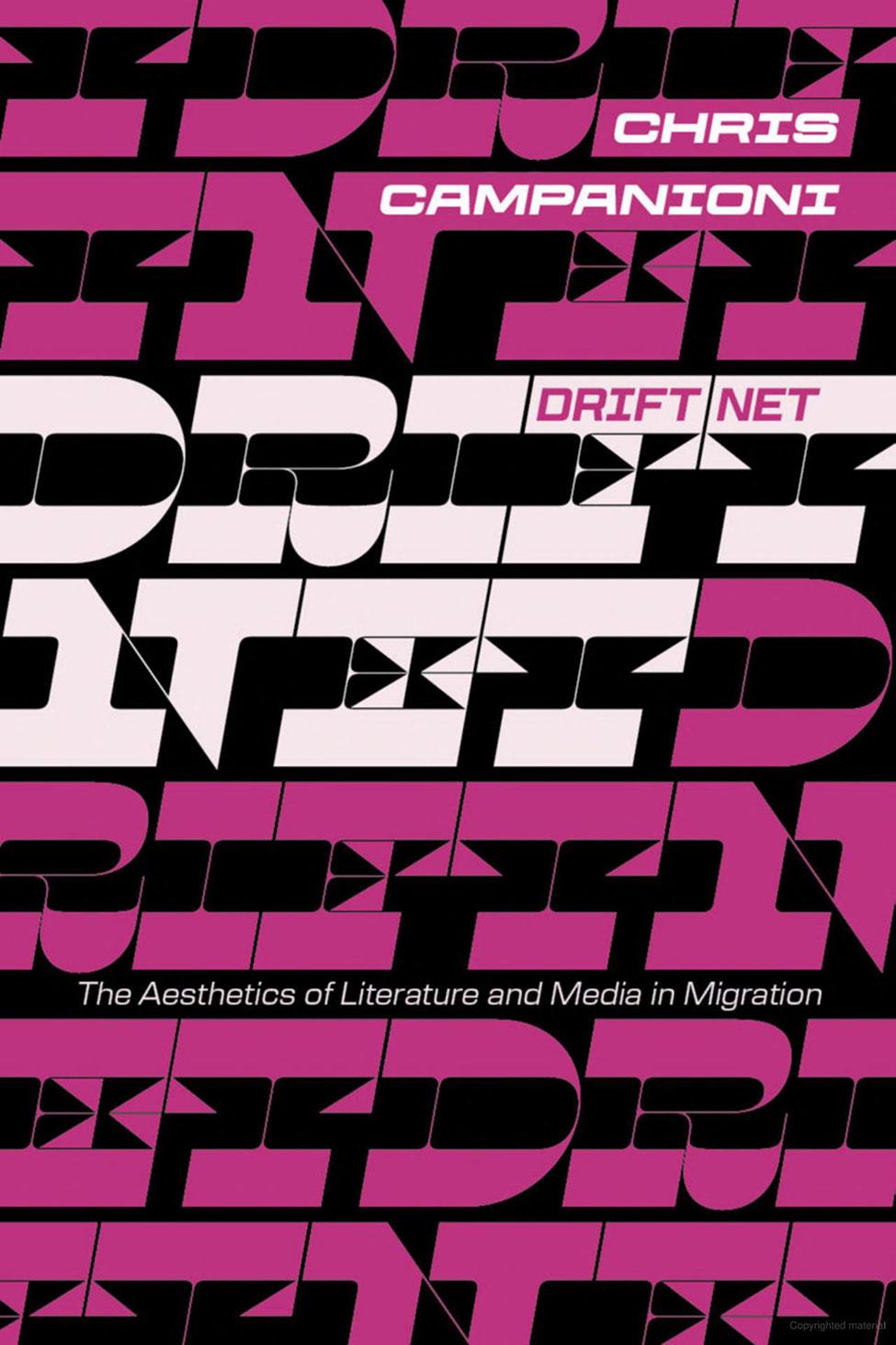

Drift Net

Chris Campanioni, PhD
Lecturer, English
What is the central theme of your book?
The theme of Drift Net is translation and migration. In the study, I’m thinking about more than just languages but the movement of a single text across different sign systems or what we commonly refer to as formats and mediums. I’m thinking about how such texts can only be produced through migration and displacement, a notion of being “born in translation” that challenges not just the traditional relationship of original-copy, but also the centering of single authorship, national literatures, and even literary periodization.
What inspired you to write this book?
Multilingualism and multimedia are both very important in my life and work. As a child, I was surrounded by Spanish, Polish, and English, and I think that relational, syncretic logic of plenitude over fluency and affinity over specialization never left me; in fact, it informs so much of my work as a writer and instructor. This is why so much of my creative output engages with media ecology and infrastructure—perhaps that’s one way to think about how all four of the very different books that were published this academic year might be knitted together in their shared concerns—and it’s especially true of Drift Net, which I hope provides not just a blueprint to envision different infrastructures of social and political governance for our future, but a guide in which to observe a very different history of new media norms, aesthetics, and strategies, which are not in fact new or even recent.
Why is this book important in your field? What does it contribute to the current body of knowledge on this topic?
Out of all my proposed interventions, I think perhaps the most exciting one is actually Drift Net’s methodology. In the study, I advance a literary theory to test its relevance outside of literature and art, specifically to read alternative housing initiatives and asylum reform efforts throughout Europe, including the largest LGBT+ refugee center in the world. The arc of the study and its use of autoethnographic narrative, alongside close readings and interviews with asylum applicants and shelter directors, speaks to the book’s mobilization of critical-creative scholarship that can be read as both a monograph of critical theory and literary analysis, as well as a craft book engaged in narrating a reassessment of how we do theory and scholarship more generally.
Tell me about a particularly special moment in writing this book.
Of the four books published over the last seven months, this one, which officially begins, I suppose, in the summer of 2017, took the longest to write. But I think the moments that I keep returning to in the years since are the conversations I had with asylum seekers, refugees, and other displaced persons, as well as the staff at the various organizations and community centers and shelters that I was able to visit during my fieldwork, all of which took place before the pandemic. No matter where I was—Germany, Italy, Denmark—the responses from persons in any position of power were essentially the same: that the dominant “Western way” of doing things was not working, it wasn’t going to work, and moreover, in order to make a new culture—to make a multicultural society work—it would be necessary to shed the assumptions, values, and behaviors we carry within a given space.
What is the one thing you hope readers take away from your book?
The realization—especially important at this very moment—that migrants and migration are central to how literature and media, including modes of authorship and identity, are made and understood today.
Is there anything else you would like to share about your book?
Drift Net is available as a gorgeous paperback, but it’s also available open access, through Lever Press and the University of Michigan’s Fulcrum platform, as well as a range of book indexers, library discovery services, and platforms including JSTOR Open, Muse Open, Open Research Library, and OAPEN. So, if you’re curious to poke around and get lost within the different routes and pathways of Drift Net, you can do so without ever leaving your computer or mobile device.
Fun Facts
What are you reading right now?
I just began Patrick Nathan’s sprawling and beautiful novel, The Future Was Color, which, like Drift Net, is interested in the material experiences of people in movement, particularly queer persons, during the Cold War.